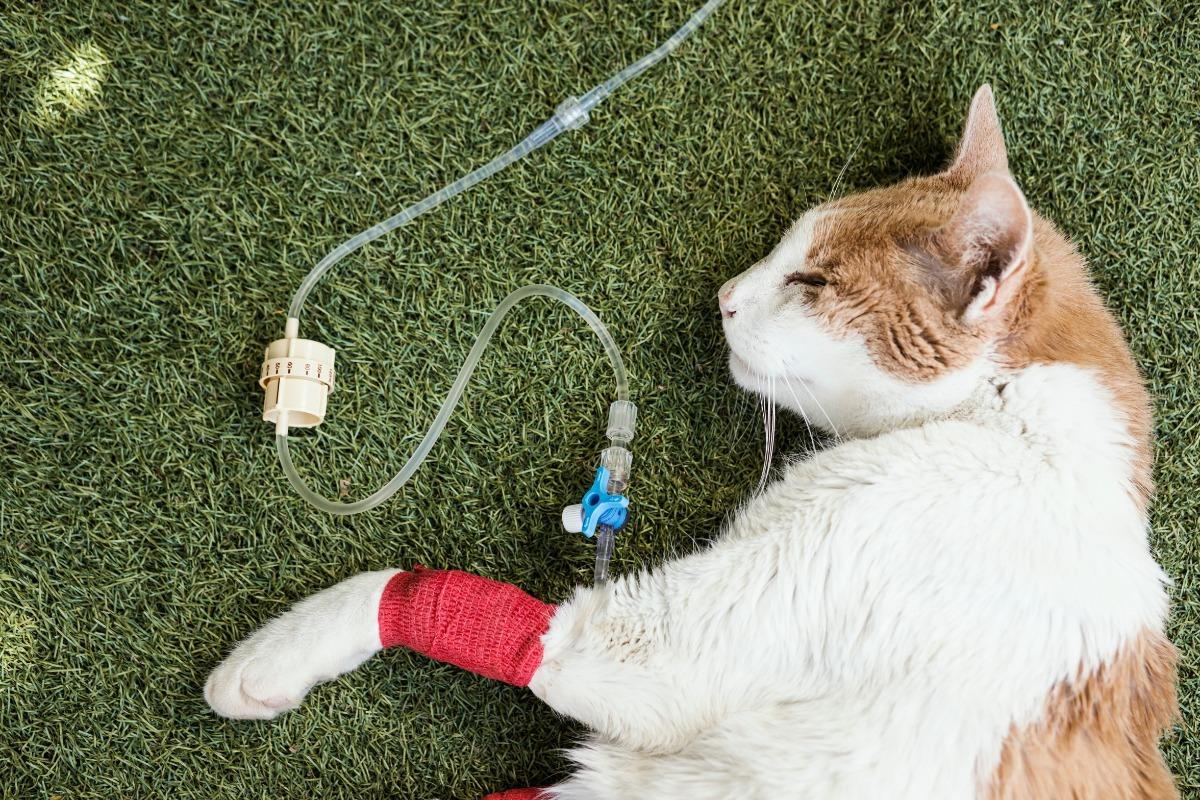Pet Anesthesia

- posted: Jul. 19, 2024
Pet anesthesia is a critical component of veterinary care, especially during surgeries and certain diagnostic procedures. At the Animal Hospital of Loves Park in Loves Park, IL, we prioritize the safety and comfort of your pets during these procedures. Understanding how anesthesia works and its importance can help alleviate concerns and ensure that your pet receives the best possible care.
What is Pet Anesthesia?
Pet anesthesia involves the administration of medications to induce a state of unconsciousness, muscle relaxation, and analgesia (pain relief). This allows veterinarians to perform surgeries and other medical procedures without causing distress or pain to the animal. Anesthesia can be administered through inhalation, injection, or a combination of both, depending on the specific needs of the pet and the type of procedure.
Importance of Anesthesia in Veterinary Care
Anesthesia is crucial for many veterinary procedures, including surgeries, dental cleanings, and certain diagnostic tests. It ensures that pets remain still and pain-free during these procedures, allowing veterinarians to perform their work with precision and safety. Additionally, anesthesia helps reduce stress and anxiety for pets, making their overall experience more comfortable.
Safety Measures for Pet Anesthesia
The safety of your pet during anesthesia is our top priority at the Animal Hospital of Loves Park. Our veterinary team follows strict protocols to ensure that anesthesia is administered safely. Before any procedure, we conduct a thorough pre-anesthetic evaluation, including a physical examination and necessary blood tests, to assess your pet's health and identify any potential risks.
Types of Anesthesia
There are different types of anesthesia used in veterinary care, including general, local, and regional anesthesia. General anesthesia induces complete unconsciousness, making it suitable for major surgeries. Local anesthesia numbs a specific area, commonly used for minor procedures or wound suturing. Regional anesthesia, such as epidurals, numbs a larger part of the body and can be used in conjunction with general anesthesia for pain management.
Monitoring During Anesthesia
Continuous monitoring is essential during anesthesia to ensure your pet's safety. At the Animal Hospital of Loves Park, we use advanced monitoring equipment to track vital signs such as heart rate, respiratory rate, blood pressure, and oxygen levels. A dedicated veterinary technician remains with your pet throughout the procedure to adjust anesthesia levels as needed and respond to any changes promptly.
Post-Anesthesia Care
Proper post-anesthesia care is crucial for a smooth recovery. After the procedure, your pet is closely monitored until they regain consciousness and vital signs stabilize. Our veterinary team provides detailed post-operative instructions, including pain management, activity restrictions, and signs to watch for during the recovery period. Follow-up appointments are scheduled to ensure your pet's ongoing recovery and address any concerns.
Contact Animal Hospital of Loves Park
Pet anesthesia is an essential aspect of veterinary care that ensures the safety and comfort of your pet during various procedures. At the Animal Hospital of Loves Park in Loves Park, IL, we are committed to providing the highest standard of care, using the latest techniques and equipment to ensure your pet's well-being. For more information or to schedule an appointment, call Animal Hospital of Loves Park at (815) 986-4445. Trust a veterinarian near you to provide compassionate and expert care for your furry friends.
Office Hours
Loves Park
9:00 am - 6:00 pm
9:00 am - 6:00 pm
9:00 am - 6:00 pm
9:00 am - 6:00 pm
9:00 am - 6:00 pm
11:00 am - 3:00 pm
Closed
Loves Park
Location
Animal Hospital of Loves Park
5036 N 2nd St
Loves Park, IL 61111
